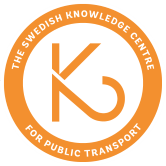This paper analyses two differing approaches to the improvement of local bus services, using the analytical lens of formal and informal institutions. Both formal and informal institutions govern the behaviour of authorities and operators, but they do it in different ways and they have advantages and disadvantages. In so doing we seek to understand both how the informal institutional approach (e.g. voluntary partnership working) can be used effectively, but also to assess its limits; and to understand why a formal institutional approach (e.g. franchising), in spite of its strong underlying basis in law, may nonetheless not always function. Through doing so, this paper contributes to the current understanding of how to handle the unintended consequences of a deregulated market through the different (formal and informal) ways available.
